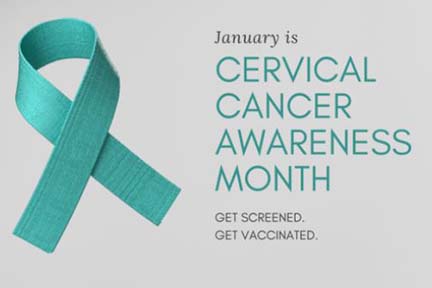Press Release FOR IMMEDIATE RELEASE: Jan. 10, 2023 CONTACT: Lynn Sutfin, 517-241-2112, SutfinL1@ MDHHS urges Michigan residents to get screened LANSING, Mich. – At the start of the New Year, many people make resolutions and begin routines to improve their health. As January is Cervical Cancer Awareness month, the Michigan Department of Health and Human Services (MDHHS) is urging Michiganders to make a resolution to be regularly screened for cancer. By staying current on cervical cancer screening, people could improve their health in 2023, and prevent cervical cancer in the future. In Michigan, the rates of new cervical cancer cases and deaths due to cervical cancer have remained relatively low but steady since 2011. Approximately 75% of cervical cancer diagnoses and 60% of cervical cancer deaths statewide occur among women ages 30-64. Furthermore, Black non-Hispanic residents experience significantly higher rates of late-stage cervical cancers and cervical cancer deaths than white non-Hispanic residents. “In its early stages, cervical cancer may not cause any symptoms,” said Dr. Bagdasarian, MDHHS chief medical executive. “Routine cervical cancer screening is the most effective way to detect cervical cancer early, when it is most treatable, and the first step is talking with your health care provider.” Screening for cervical cancer is recommended to begin at age 21 and as follows: Women ages 21 to 29:
Women ages 30 to 65: (one of the following options)
MDHHS has openings for program-eligible individuals to receive free cancer and health screenings through two of its programs.
To learn more about Michigan’s Breast and Cervical Cancer Control Navigation Program and the WISEWOMAN Program, call 844-446-8727 or visit Michigan.gov/cancer. For Spanish resources, call 800-379-1057. |


